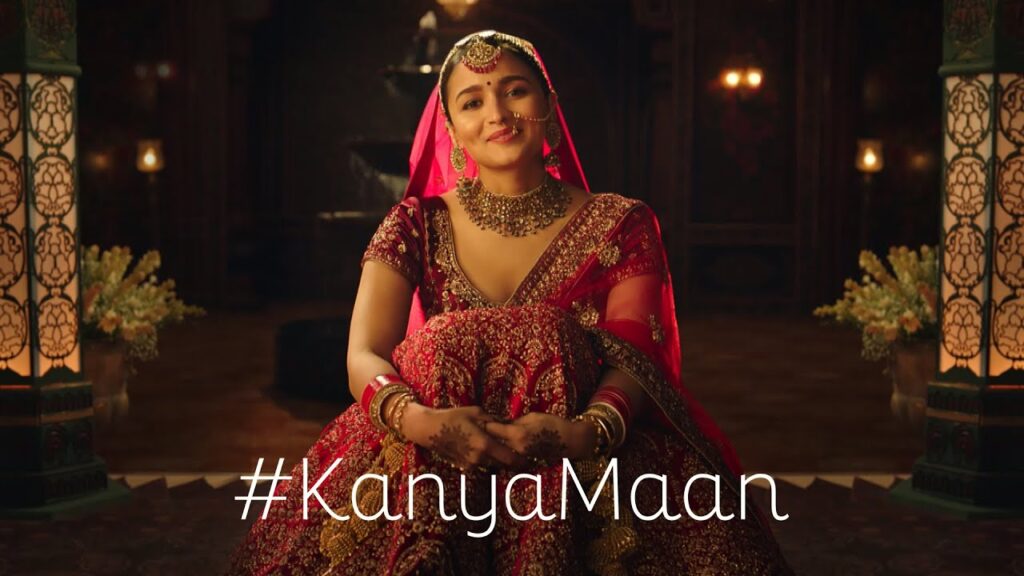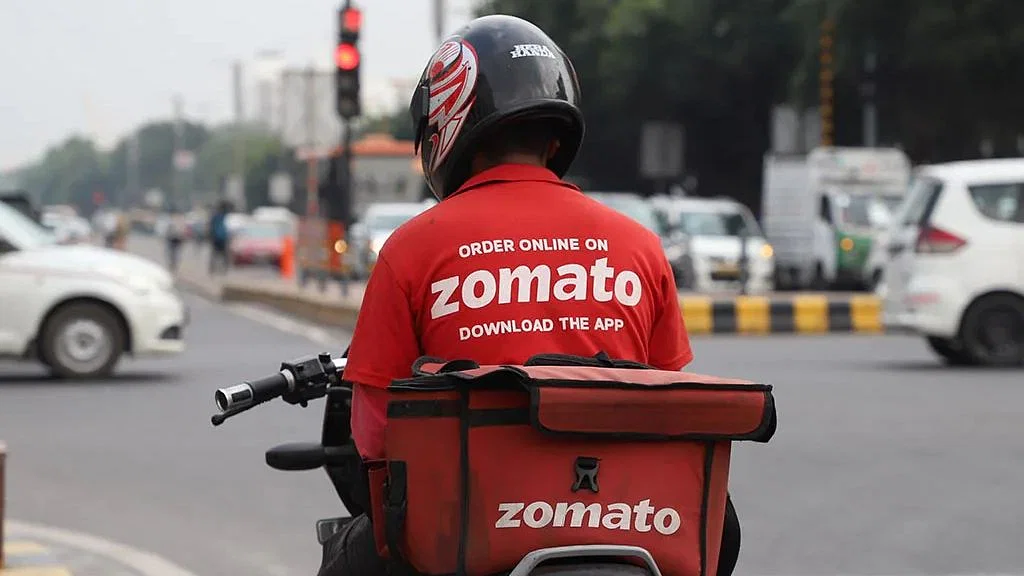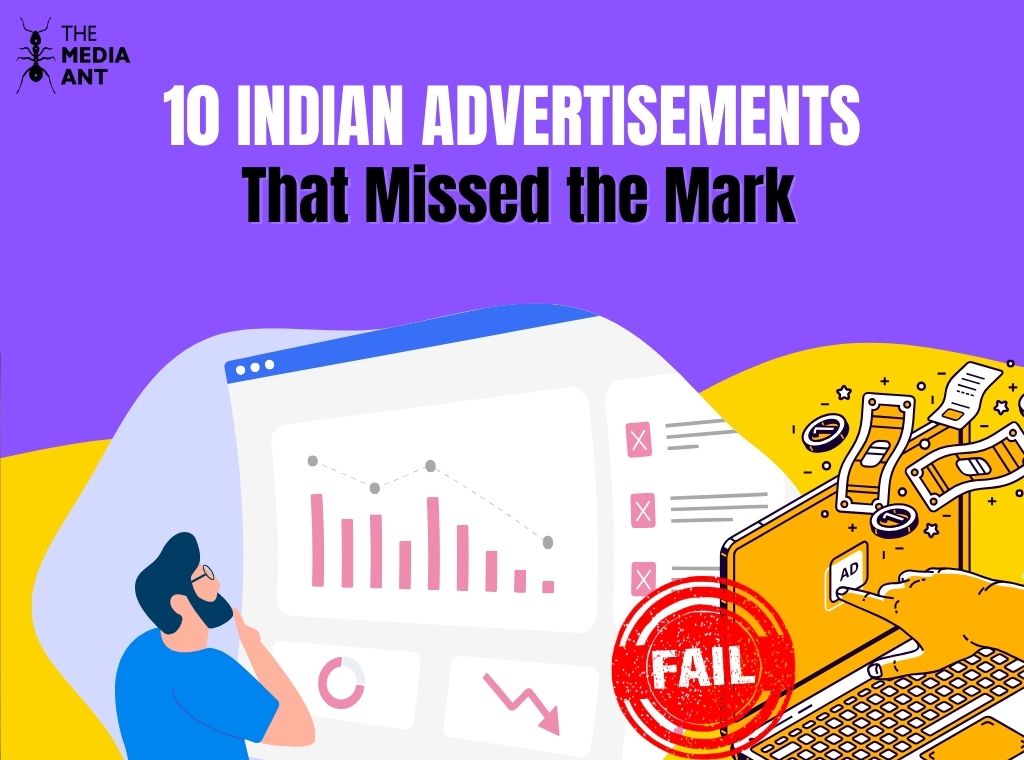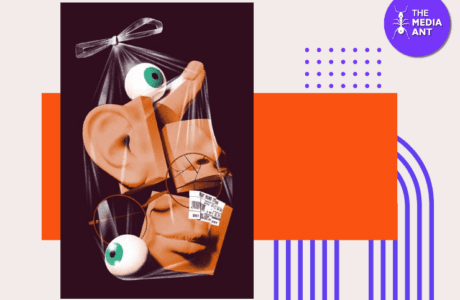Ever seen an ad that was so bad that it made you laugh and question, who even signed off for that? India is full of amazing ads, but even the best fail sometimes, and some ads are just bad, really bad, and tasteless. When you are catering to such a large and diverse audience there are times when something backfires even when it wasn’t intended to hurt people’s emotions. So grab a snack and have a look at the Top 10 advertising fails in India.
Top 10 Advertising Fails in India
1. Amul Macho- Ye toh bada toing hai
I would never understand Indian brands and their obsession with including sex appeal in any product with men as their target audience, be it a perfume ad or this classic example of an underwear ad by a popular underwear brand for men in India, Amul Macho.
In this ad, Sana Khan played a newly-wed who washes her husband’s underwear in a sensuous way while other women on the pier are really uncomfortable with whatever is happening, I mean who wouldn’t be? Anyways, the ad makers intended to take a hilarious take but failed miserably.
2. Tata Nano

There was a time in India when a car was a form of luxury, and middle-class people didn’t have many options other than WagonR, Alto, and Maruti 800. Tata Nano came to the rescue and launched the “People’s Car” for its affordability and marketed it as a ’cheap’ car. While the intention was to make car ownership accessible to the masses, the ultra-low price tag backfired. Many consumers, instead of seeing it as a practical solution, perceived it as a “cheap car” lacking quality or safety features. This perception dented the car’s image and ultimately its sales.
3. Zomato

Social media-savvy Zomato is known for its engaging content, but even successful brands can falter with advertising. Their past attempts show that striking the right chord is crucial.
One example was an outdoor ad using abbreviations with a playful twist. Zomato redefined “MC” and “BC” as “Mac N Cheese” and “Butter Chicken.” This backfired though, with some viewers finding it distasteful or offensive, and others simply unimpressed. Overall, it was a flop.
4. Fair & Lovely

For the last two decades, Fair & Lovely has been promoting the idea that ‘fair’ is the only way, whether you want to succeed in life or want a partner. But the times are changing and the ‘fairness’ narrative is losing its charm hence Fair & Lovely faced a lot of backlash for being racist. Facing mounting pressure, Hindustan Unilever Limited (HUL) rebranded its Fair & Lovely product line as Glow & Lovely in 2020. But does it change the fact that they are selling the same product just under a different name? Absolutely No!
5. Manyavar

Remember the Manyavar ad with Alia Bhatt? Yeah, that caused a fight online.
The ad basically said the old way of giving away brides at weddings wasn’t cool anymore. They even made up a new word, “Kanyamaan,” which means respecting the daughter instead of giving her away. Some people thought this was a great idea, but others were annoyed by the same. They thought the ad was messing with Hindu traditions. It got so heated that people even started saying they wouldn’t buy Manyavar clothes anymore, and the #boycottmanyavar was trending online.
6. Dove’s Real Beauty Bottles

Dove, known for its “Real Beauty” campaign celebrating diverse body types, tried something new with their bottles. Imagine your favorite Dove body wash, but instead of the usual curvy shape, the bottle comes in all sorts of shapes and sizes! This was their way of showing that beauty comes in all packages.
Great idea, right? Well, not quite. In India, the different bottle shapes caused some confusion. The focus on size variation wasn’t what resonated with the audience, others shared their disappointment over the white color bottle skin. Instead of celebrating diversity, it ended up missing the mark.
7. Dixcy Scott – Fully Elastic Fully Fantastic
Remember Dixcy Scott’s underwear ad with Salman Khan? It aimed high with a catchy tagline and a Bollywood superstar, but the actual commercial was totally bonkers.
Here’s the weirdness: Salman Khan, rocking a lungi in Scotland (of all places!), encounters some bagpipers. His friend throws out a strange rumor that they don’t wear underwear. Khan responds by… having a bagpipe duel with them, playing Indian snake charmer music (naagin tunes) no less! The whole thing ends with the bagpipers’ underwear mysteriously falling off, proving the rumor wrong.
Yeah, this ad wasn’t exactly a masterpiece. It had a cool tagline and a big star, but the actual commercial made no sense and was just plain bizarre.
8. Zomato Fast Delivery Ad Awakened Netizens, 202

In 2021, Zomato, a big name in Indian food delivery, faced backlash for their “Fast Delivery” ad campaign. It likely featured speedy deliveries promoted by celebrities. The problem? Indian internet users (netizens) were furious. They felt the focus on super-fast service ignored the safety and well-being of the delivery riders. The ad came across as prioritizing speed over treating riders fairly. This online outrage highlighted a growing trend – consumers are looking at companies to be more socially responsible, and that includes how they treat their workers. Zomato’s ad campaign became a lesson in how even a seemingly simple ad can spark controversy if it doesn’t consider the bigger picture.
9. Burger King: A Mold on a Burger?

Burger King definitely took a gamble with their Whopper ad! They tried to be bold and show everyone they use no preservatives by displaying a moldy burger. Eww, right? Instead of being impressed, people were totally grossed out.
Would you be grossed out by an ad showing rotten food? Yeah, Burger King’s ad backfired in a big way. This is a perfect example of how trying to be too edgy can totally backfire!
10. Kent Ro, An Ad Insensitive to House- Helps

During the pandemic, many brands jumped on the bandwagon of promoting hygiene products. But Kent’s ad for their new Atta & Bread Maker backfired spectacularly.
Their commercial featured Hema Malini and Esha Deol, suggesting their machine was better than having a maid knead the dough by hand. People were furious! They slammed Kent online for being insensitive to housemaids, especially during a difficult time like COVID-19 when many were losing jobs. The ad was seen as discriminatory and inconsiderate. Kent quickly pulled the ad and apologized, promising to review their advertising process. This whole episode shows how important it is for brands to be mindful of their messaging, especially during sensitive times.
Conclusion
The world of advertising is a tightrope walk. Striking the right chord is crucial, and even established brands can stumble. As we’ve seen, some campaigns fail due to cultural disconnect, insensitive stereotypes, or simply being downright strange. The key takeaway? Brands must be mindful of their audience, conduct thorough research, and prioritize authenticity. By avoiding these pitfalls and embracing social responsibility, advertisers can craft campaigns that resonate with the Indian market and achieve lasting success.
Explore Advertising options at The Media Ant for impactful campaigns.





